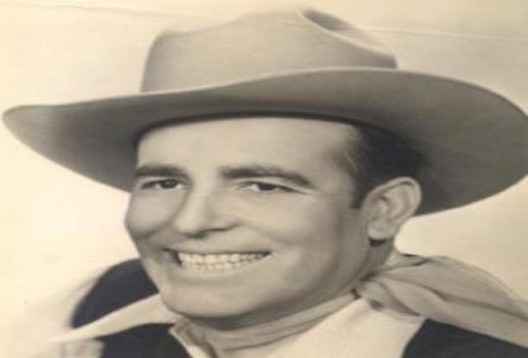WILLS, JAMES ROBERT (1905-1975). James Robert (Bob) Wills, musician, was born on March 6, 1905, near Kosse, Limestone County, Texas, the first of ten children of John and Emmaline (Foley) Wills. In 1913 the family moved to Hall County, where they settled on the Ogden Ranch, between Memphis and Estelline. In the early 1920s they moved to a combination farm and ranch between the Little Red River and the Prairie Dog Town Fork of the Red River. In Hall County Wills learned to play the violin; in 1915 he played at his first dance. He played for ranch dances in West Texas for the next fourteen years, and his life and career were greatly influenced by that environment. During that time he brought together two streams of American folk music to produce western swing. He had first learned frontier fiddle music from his father and grandfather, but he also learned blues and jazz from black playmates and coworkers in the cotton fields of East and West Texas. He played fiddle music with the heat of blues and the swing of jazz; his new music could as properly have been called western jazz as western swing. In 1929 Wills moved to Fort Worth, where he performed on several radio stations, organized a band that became the Light Crust Doughboys,qv and worked for a future governor of Texas and United States senator, W. Lee O'Daniel.qv In 1934 Wills moved to Oklahoma, where he made radio and musical history with his broadcasts over Station KVOO. During his years in Tulsa (1934-43) he and his new group, the Texas Playboys, continued to develop the swinging western jazz he had pioneered in West Texas, adding drums and a horn section of brass and reeds. Wills's recording of his composition "New San Antonio Rose" (1940) made him a national figure in popular music. He went to Hollywood that year and made the first of his nineteen movies. Wills joined the army in December 1942. After World War IIqv he had his greatest success, grossing nearly a half million dollars during some years. In 1957 he was elected to the American Society of Composers, Authors, and Publishers. In 1968 he was elected to the Country Music Hall of Fame, although he never thought of his music as "country." Wills was married and divorced several times between 1935 and 1941. On August 10, 1942, he was married to Betty Anderson, and they remained married until his death; they had four children. Wills had two children by former marriages. In 1969 the governor and legislature of Texas honored Wills for his contribution to American music, one of the few original music forms Texas and the Southwest have produced. The day after the ceremonies in Austin, Wills had the first in a series of crippling strokes. By 1973 his health had improved to the extent that he could lead some of his former Texas Playboys in a recording session for United Artists. The album, For the Last Time: Bob Wills and His Texas Playboys, sold more copies than any other in Wills's career and was awarded a Grammy Award by the National Academy of Recording Arts and Sciences, the highest achievement of any Wills recording or any other recording in the history of western swing. Bob Wills died on May 13, 1975, and was buried in Memorial Park in Tulsa, Oklahoma.
BIBLIOGRAPHY: Ruth Sheldon, Hubbin' It: The Life of Bob Wills (Kingsport, Tennessee: Kingsport Press, 1938). Charles R. Townsend, San Antonio Rose: The Life and Music of Bob Wills (Urbana: University of Illinois Press, 1976).
Charles R. Townsend
| Date |
Venue |
City |
State |
Note |
| No Tour Dates Available |
01/10/2007 - Ride with a legend, Ride with Bob -
Read More
12/24/2006 - Bob Wills: His Rollicking Roots Are Showing -
Read More
12/07/2006 - Bob Wills and His Texas Playboys -
Read More
09/27/2006 - Bob Wills & His Texas Playboys - Legends of Country Music - Columbia/Legacy -
Read More








 Total Reviews: 11
Total Reviews: 11
















































